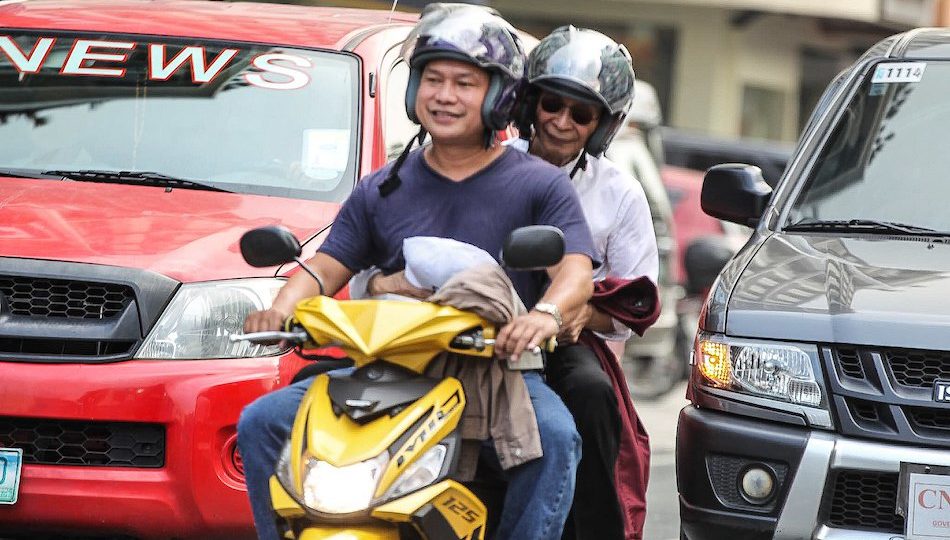Presidential spokesman Salvador Panelo today found himself still struggling to walk back controversial remarks about Manila traffic, maintaining he didn’t mean to insult millions of commuters when he told them to leave their homes earlier if they wanted to get to work on time. In fact, he was actually praising them.
In an interview on the CNN Philippines talk show The Source, Panelo again sought to quell the stubbornly persistent anger over his remarks, insisting that he, too, was a victim of the capital’s glacial traffic.
“That was not an offensive statement,” he said of last week’s comments. “I was actually praising the public. Like me, I used to wake up at 7am; now that’s no longer possible. I have to wake up at 5am [to arrive on time]. You should credit the creativity of the Filipino, because when there’s a hostile environment we find ways [to cope]. That’s what we’re good at.”
Just in case you’d forgotten (and it would seem no one else has), Panelo last week dismissed claims of a “transport crisis” in the capital, dismissively suggesting during a press conference at Malacañang Palace that the “solution” to traffic jams: “If you want to arrive early at your destination, then you go there earlier.”
Read: ‘Wake up early’: Duterte spokesman draws flak for denying Metro Manila has ‘transport crisis’
The remarks were widely interpreted as sounding a bit more like “Let them eat cake” than an ode to commuters’ resiliency.
When the show’s host, Pinky Webb, showed Panelo a video of commuters scrambling to enter a bus through its windows, Panelo stayed positive. “That’s still creativity,” he insisted, without any hint of sarcasm.
Read: Desperate Measures: Taguig City commuters climb into full bus’ windows
Panelo also discussed his much-publicized Friday commute via Manila’s public transport, which took him almost four hours. He maintained the journey took longer than usual because he took a roundabout route from his home in Marikina City, going first to Cubao, then back to Marikina, then to Mendiola, in Manila, where the Palace is located.
“The truth is, if I came [directly to the Palace] from where I started, it would take me only 15 minutes, or 20. Especially at 5am.”
(Suuuure. By our best estimation, the quickest route between Marikina and the Malacañang on public transit would take at least two hours at peak times, which, in Marikina, start around 5:30am.)
Panelo undertook the grueling commute after being challenged by an activist youth group to get to work via the capital’s ailing public transit system in the wake of his comments.
“The challenge they gave is that I needed to show that I’m suffering [like the public]. First of all, that’s not necessary because when I’m on my car, I can see people lining up, struggling to get a ride. You already know that they are suffering,” he said, seemingly oblivious to the fact that he had somehow managed to make himself sound even more out-of-touch.
“I just accepted it because they are making it appear that those in the government cannot do that. They chose the wrong person to challenge. I grew up riding buses, jeepneys, and tricycles. All of us in the Cabinet [did].”
Panelo then went on to stubbornly maintain, in a legalistic fashion befitting his background, that Manila is not suffering from a “transport crisis,” per se.
“What we have is a traffic crisis. When you say transport crisis, [that’s] paralysis, you can’t find anything to ride on. I concede we have a problem with that [traffic].”
Are you buying Panelo’s explanation? Tell us why (or why not) by leaving a comment below or tweeting to @CoconutsManila.
Find all episodes of The Coconuts Podcast





Reader Interactions